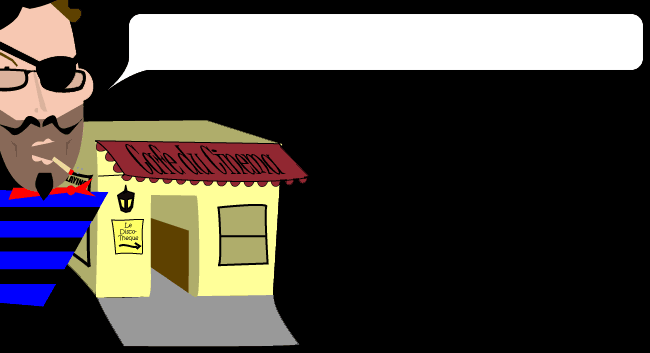by Brian.
Francis Ford Coppola continues to confuse me with his fluctuations of taste and quality. How can the same man produce a film like The Godfather and a film like Jack in the same lifetime? Regardless of his body of work on a whole, I'm still in love with several of his earlier works of art, The Conversation included.
Made quickly and silently between the first two Godfathers, The Conversation is a subtle study in isolation. Everything in the film, from the protagonist's profession (audio surveillance) to his residence to his wardrobe to his taste in music, exhibit themes of isolation in voyeurism; a figure alone looking in on life. It's not surprising that many identify with this feeling, which makes it all the more astounding to me that this film is not incredibly well known. It's truly the quiet masterwork of a genius at his apex.
Many of the most favorable elements in this film are very subtle, almost subliminal. There is a certain confidence and honesty in a film that's not afraid to hide its themes that is lost in today's gaudy showcasism. Too many times do I see current film state in all caps: THIS WILL BE IMPORTANT LATER, NOTICE THIS BECAUSE IT'S COOL AND I DON'T WANT YOU TO MISS IT, or THIS CHARACTER IS BAD.
One finds none of that in The Conversation, only quiet introspection and objective observation. That is not to say that the film is boring, the camerawork and direction is extremely ornate and detailed, specific in its vagary. The camera itself is a statement, obliquely fashioned after security cameras and auto-tracking surveillance, movements are either sparse or mechanical. Although we may not realize it, this does affect us. In fact, many aspects of this film act as unnoticed but not unobserved. Since this correlates with the themes present in plot, we are left with a feeling that everything seems right, it just fits together.
The newly released special edition DVD showcases the film in a splendid picture transfer and an absolutely amazing new sound mix. Since so much of this film involves sound, the clarity and dimension of the track brings the film to its fullest life. The two commentaries, one by sound engineer/editor Walter Murch and another by Coppola himself, are interesting in their own way. While Murch just hints at a few things and explains a lot about the editing and sound of the film, Coppola takes you step by step through the film, explaining away all of the subtle intricacies and nuances that make the film great. Although it's nice to have the director spell everything out for you, it does ruin some mystique of the film.
This film, unlike the strong rustic flavor of Coppola's Napa valley selections, strikes me as a smoother, more elegant red. One that does not broadcast its rich flavor, but leaves its harvested genius to be discovered by the audience.
back.
Varietal: Smooth Red
Vintner: Francis Ford COppola
Vintage: 1974
Vineyard: Paramount
